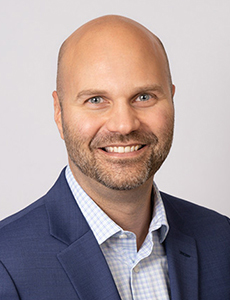Mass Retirement for Boomers Adds Urgency to Insurance Talent Search

The Risk Institute at The Ohio State University Fisher College of Business recently released data from its Fifth Annual Survey. Ninety-five percent of firms reported impending impact due to the mass retirement of baby boomers, with 60% saying it will have a high to moderate impact.
Approximately 75 million Americans were born between 1946 and 1964, the most common parameter for the baby boom cohort. That means that the youngest of them are just 10 years or fewer from retirement age.
The mass retirement of an entire generation is looming on the horizon and will alter the American economy, workforce and general livelihood, the OSU survey found.
That situation will be exacerbated by two other demographic and economic factors. Because of smaller populations of younger generations as well as the Great Recession, many companies will not have enough younger workers with the experience to completely replace the retiring boomers, particularly in areas such as information technology (IT), finance and customer service.
That talent gap, in turn, can hamper a company’s overall effectiveness and bottom line. Businesses can protect their organizational health and bottom lines by approaching this workforce shift with a strategic mindset and developing a resilient risk strategy.
“This is such a critically important topic,” said Anna Beninger, global head of diversity & inclusion at AXA XL.
“The patterns of talent shortage are a screaming blinking light that there is a massive retirement bubble. There has to be a dramatic reconsideration of the type of talent that companies are seeking. It’s deeply concerning how poorly prepared organizations are to face this.”
The Talent Gap Brings Institutional Challenges
The challenge is not just demographic or educational, it is also institutional, Beninger elaborated: “There is a significant mindset change necessary” in recruiting and hiring.

Anna Beninger, global head of diversity & inclusion, AXA XL
“Organizations need to re-think recruitment. First, they need to be tapping a much larger talent pool. Those people are going to look different and have different experiences and perspectives. That is going to bring novel ideas,” she said.
Then from that larger talent pool, “They need to flip the script from thinking about how to weed out candidates to thinking about how to focus on transferable skills. That is, how can a person fit and help the organization. There has to be an appreciation of what the skills of the future look like.”
High on any list are interpersonal and leadership skills.
“Those are [as] equally important as technical skills,” said Beninger.
She noted that the next leaders will be those who are comfortable with technology, even if they are not the most tech-savvy people in the organization. What matters for leadership is if they can manage the human-machine interface.
Mass Retirement Will Hit Insurance Especially Hard
Beninger stressed that the risk management and insurance sector is among the most subject to that massive retirement bubble.
“Only 4% of millennials have evinced interest in the insurance sector,” Beninger noted dryly. “Our industry is not sexy. It’s very white and very male.”
Within her own company, Beninger says that new mandatory diversity recruiting and hiring guidelines have been instituted.
She noted that teachers as well as nurses and other medical professionals often start young and complete 20 or 30 years of service with many of the skills that make them excellent leaders and managers. Those fields are also mostly female and much more diverse than the corporate world.
It would take some training to bring a teacher or medical professional up to speed on insurance practices, but with their other skill sets already strong, “the investment would pay off.”
Almost all firms, irrespective of financial or non-financial, public or private, will be somewhat impacted by Boomers retiring, according to the OSU survey. Almost 60% of all firms will be moderately/highly affected, with this ratio reaching to 64% for public firms.
Within organizations, finance is the top function in financial firms, with 41%, while information technology is the top in public firms, at 36%.
The impact on IT might seem counter-intuitive, given that the field seems to be overflowing with millennials. But Phil Renaud, executive director of the OSU Risk Institute, noted that there tends to be a low rate of turnover in that field, which can hamper leadership development.
The Affects of the Missing Generation
He also noted the missing generation.
“There is a reverse bell curve with larger numbers at the ends rather than in the middle. That is because of the recession in 2008-11. Many companies were not hiring at all. They have made up the numbers since then, but they missed the window for developing the next generation of leaders.”
In terms of risk management, the demographic and organizational risks are not transferable. “These are enterprise risks,” said Renaud. “Companies cannot take out a policy to transfer the risk.”
The problem is multifaceted: “It is not just a question of where is the talent,” said Renaud. “It is not just a matter of finding and paying for the talent. There is also the matter of legacy operating systems at most companies.”
In many cases older operating systems work fine, and replacing them would be a major capital and operating expense to change them. If companies choose not to overhaul their systems, there will remain a need for a few boomers to stay in the workforce long enough to train their successors.
Companies are responding in a wide variety of ways, Renaud said. Some are consolidating their IT or financial functions to get the most utility out of the few managers they have.
Others are moving those functions to smaller cities and college towns where there is abundant talent, and less competition than in bigger business-center cities.
Other firms are taking the opposite approach. They are hiring wherever they find talent, and having them work remotely as much as possible.
In some cases companies are simply farming out the functions to other firms. “That approach can create entirely new risks,” Renaud said.
“Outsourcing becomes a rapidly emerging risk that extends out to the nth party.”
The default approach, he added, was for organizations to try to retain boomers as consultants or in some part-time capacity. “In any case, the institutional risk, the enterprise risk, is the challenge for executives and human-resource departments how they are going to handle mass retirement.” &










